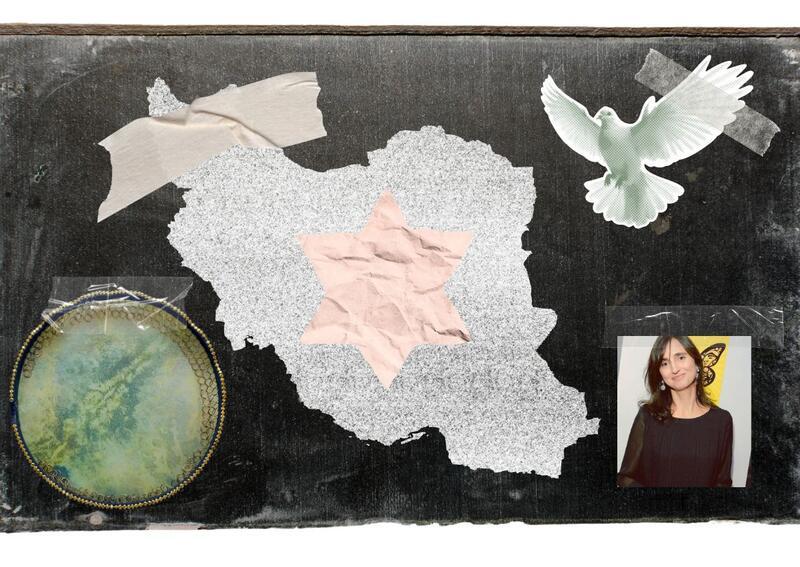Speaking Out as an Iranian Jewish Woman
Although I have never been to Iran, I hold onto my family’s Persian culture through playing Daf, a classical Persian instrument, speaking Farsi at home, and regularly enjoying my mom’s Persian culinary masterpieces. All these elements allow me to feel bonded to the people of Iran. My undeniable connection to Iranians and our culture keeps me interested in the overall welfare of Iranian people. Despite the Iranian women's liberation movement dying down, the women of Iran have been suffering since the 1979 Islamic Revolution and will continue to suffer until there is a proper revolution.
During the 1979 revolution, the pro-Western monarchy and the king of Iran, Reza Shah Pahlavi, were overthrown in favor of an Islamic regime, led by Ayatollah Khomeini. This revolution shifted the geopolitical framework of the world as Iran flipped from its support of the West, to viewing the West as the enemy. Today, Iran is the largest state funder of terrorism in the world, greatly contributing to the instability in the region. From the Houthis in Yemen, to Hezbollah in Lebanon, and Hamas in Gaza, Iran has a hand in nearly all the turmoil in the Middle East.
Due to their fundamentalist perspective, current Islamic leaders in Iran believe that women's bodies are provocative to men, leading men to sin. From this perspective, women’s sheer existence must be shoved into the shadows in order for men to adhere to Sharia law.
Furthermore, after the 1979 revolution, all Persian Jews were restricted in their ability to freely practice their religion as synagogues and Jewish education were heavily censored. Many in the Persian Jewish communities fled their homes while a small number remained. They were often fearful of being wrongfully imprisoned or executed on trumped-up charges, such as the accusation of being an Israeli spy or a Zionist.
This revolution stripped my mother, grandmothers, and aunts of their human rights, including the ability to freely dress and to exercise personal agency. It barred them from positions of political power such as judgeships. Their rights quickly evaporated. My mother’s first memory as a five-year-old is having a cigarette put out on her thigh by morality police because she was wearing yellow shorts. Even the simplest activities that I take for granted like singing and dancing in public, attending sporting events, and taking a bike ride are prohibited for the women of Iran.
To ensure absolute compliance with the restrictive laws, the morality police, a unit of the police that enforces Sharia law, roams the streets and detains anyone who violates the law. Most notably, a woman named Mahsa Amini died in police custody last year because a few strands of her hair were showing. Her death led to national and international outcry and brought the women of Iran out of the dark, revealing the harsh oppression they face. The slogan of the movement was “Women. Life. Freedom.” Consequently, the uprising ignited harsher crackdowns and even more people dying while opposing the Iranian regime. The Iranian government also disconnected citizens from the internet, virtually isolating the Iranian people from not only the international community, but more specifically from interacting with Western ideals of democracy, equality, and freedom of speech. Iran’s enemy is the West but especially countries like the United States and Israel as they harbor strong values of democracy, progress, and freedom. Pro-government demonstrations traditionally burn their flags while chanting “death to Israel” and “death to America.” My own mother was forced to chant these words while she was in school as it was a part of the daily schedule.
This blatant misogyny and antisemitism make the work of Jewish-Iranian activist Roya Hakakian all the braver. Raised in Tehran, she witnessed the revolution unfold. Her family huddled on their rooftop as they listened to the screams of “God is great” at night; the headmaster of her Jewish school attempted to convert Jewish girls to an extreme path. From these first-hand experiences, Hakakian understands the Islamic Regime and their motives.
Hakakian co-founded the Iran Human Rights Documentation Center, which addresses Iran's human rights violations. Furthermore, Hakakian’s articles, books, and interviews call attention to gender issues in present-day Iran. In her most recent article published by The Atlantic, she connects Hamas and the massacres they committed on October 7 to the oppressive Iranian regime that has held Iranians captive for the last forty-four years. Like the Israeli women raped and assaulted by Hamas in their homes, the imprisoned women on charges related to speaking up during the 2022 uprising were raped by Iranian officials while in jail.
Due to Hakakian’s Jewish and Iranian background and her feminist viewpoint, she can draw parallels that most are unaware of and ask questions that lead to a deeper understanding of power structures but more specifically, patriarchal Islamic regimes.
As the daughter of two Iranian immigrants, I am compelled to take advantage of the opportunities and privileges my mother, aunts, and grandmothers were deprived of. Hakakian serves as a prime example of a Jewish-Iranian woman taking advantage of the freedom she has been granted while undoubtedly maintaining an unbreakable bond to her Iranian roots and the innocent Iranians held hostage by their own government.
This piece was written as part of JWA’s Rising Voices Fellowship.







